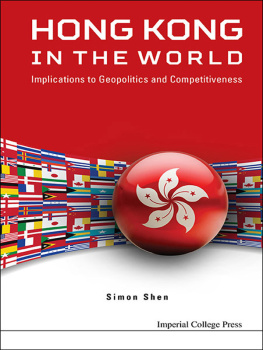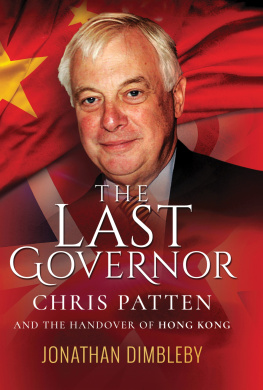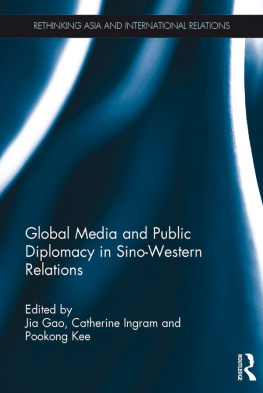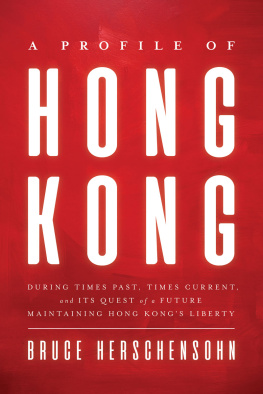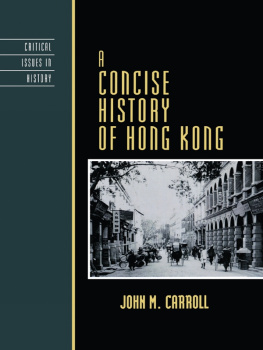Media and Politics in Post-handover Hong Kong
The world was watching Hong Kong as its sovereignty was returned to China in 1997. Many predicted that it was the doomsday of press freedom in the city.
Now, a decade after the handover, this book provides an up-to-date review of the dynamic relationship between media and political power in the post-handover years. It covers seven key issues including:
- the mapping of the changing boundaries of press freedom,
- the impact of media ownership change on editorial stance,
- the development of national and hybrid identities,
- the tension between self-censorship and media professionalism,
- the rising importance of government public relations,
- the power and limits of hegemonic discourse, and
- the countervailing force posed by collective actions and public opinion.
These studies combine to reveal how the media are transformed as power structure is reconfigured and how the media may act upon politics in exerting their roles as the peoples voice. The book will serve as a reference for anyone who is interested in the evolution of political communication in a transitional society.
This book was previously published as a special issue of the Asian Journal of Communication.
Joseph M. Chan is concurrently a professor in Journalism and Communication at the Chinese University of Hong Kong and the Changjiang Chair Professor of the School of Journalism, Fudan University, PRC.
Francis L. F. Lee is assistant professor at the Department of English and Communication, City University of Hong Kong.
First published 2008 by Routledge
2 Park Square, Milton Park, Abingdon, Oxon, OX14 4RN
Simultaneously published in the USA and Canada
by Routledge
711 Third Avenue, New York, NY 10017
Routledge is an imprint of the Taylor & Francis Group, an informa business
2008 Edited by Joseph M. Chan and Francis L. F. Lee
Typeset in Minion by Datapage International Ltd., Dublin, Ireland
All rights reserved. No part of this book may be reprinted or reproduced or utilised in any form or by any electronic, mechanical, or other means, now known or hereafter invented, including photocopying and recording, or in any information storage or retrieval system, without permission in writing from the publishers.
British Library Cataloguing in Publication Data
A catalogue record for this book is available from the British Library
ISBN 10: 0-415-45116-7 (hbk)
ISBN 13: 978-0-415-45116-1 (hbk)
Contents
Joseph M. Chan & Francis L. F. Lee
Francis L. F. Lee
Clement Y. K. So & Joseph M. Chan
Anthony Y. H. Fung
Eric K. W. Ma & Anthony Y. H. Fung
Agnes Shuk-mei Ku
Betty Kaman Lee
Joseph M. Chan & Francis L. F. Lee
Joseph M. Chan & Francis L. F. Lee
Speculating on the future of Hong Kong was a popular activity of both the local and international media in the run-up to the handover. Much of the discussion was tinted by a sense of pessimism that culminated in a cover story of the Fortune Magazine in 1995 proclaiming the death of Hong Kong. According to the then prevalent belief, Chinas political influence would be too strong for the city to withstand. Social and economic institutions would align with the new power center. The distinctiveness of Hong Kong would disappear. Civil liberties would be curtailed and the media would be shackled.
Such predictions are not completely wrong. Cultural differences between Hong Kong and China did diminish over time. The democrats in the city would certainly argue that civil liberties and press freedom have declined. But the speed and extents of these developments have been much lesser than many have predicted. In the media scene, despite political pressure, the public broadcaster Radio Television Hong Kong has yet to become a government mouthpiece. Apple Daily continues to reap profits by marketing its pro-democracy stance. During the Tung Chee-hwa administration (19972005), heavy media criticisms towards the Special Administrative Region (SAR) government have led officials to lament that the city was governed by the media. In the larger society, Falun Gong, if heavily marginalized, is not outlawed yet. Tens of thousands of citizens still congregate annually to commemorate the Tiananmen incident in 1989, while the 2003 July 1 protest, in which 500,000 Hong Kong citizens protested against national security legislation, has kick-started a series of large-scale pro-democracy protests in the city.
These phenomena point to the complexities of media politics in post-handover Hong Kong. Most of them will be taken up by the seven articles in this special issue. Each article addresses an important topic. Some represent long-standing concerns, such as press freedom, media political economy, journalistic professional ideologies, and medias role in shaping citizens national and local identities. Some represent new developments in or new approaches to the study of media politics in Hong Kong, such as how cultural codes structure media discourses, the relationship between media and pro-democracy protests, and the rising prominence of government public relations.
It is unnecessary to summarize each article here. Rather, this introduction draws upon the analyses by our authors to address a theoretical question which has been central to the study of political communication in Hong Kong, namely, the relationship between media and political power. We contend that a range of social, political, and cultural forces have to be considered in understanding this relationship. To repeat the metaphor used by Chan and Lee (1991), the Hong Kong press remains firmly in Chinas orbit. But to properly trace the orbit, we have to map the centripetal and centrifugal forces pulling the media towards and away from the center, and understand how the forces interact to produce contingent outcomes.
The Centripetal and Centrifugal Forces
Among scholarly works on media and political transition before the handover, Chan and Lees (1991) Mass media and political transition, to our knowledge, has provided the most elaborate articulation of why and how the Hong Kong media as a whole were and will be shifting their stances towards the new power center. Premised upon the argument that mass media reflect unevenly the perspectives of the power structure and thus react unevenly to the changing power relations in society (p. 20), the book observes that the journalistic paradigms of the media have already been shifting and will continue to shift as the power structure is reconfigured.
Surely, the importance of power structure cannot be dismissed. After the handover, the Chinese government has the legal right to interpret the Basic Law, the mini-constitution of the SAR. It has maintained tight control over the most important issues in the city, such as the selection of the Chief Executive and the pace of democratization. It has imposed a set of basic vocabularies (e.g. one country, two systems) and occasionally new rhetoric (e.g. patriotism) into the citys public discourses. In addition, China can co-opt a substantial section of the social, economic, and political elites in the city by meting out economic and political rewards. The last point is particularly important in contributing to the formation of what Anthony Fung (this volume) calls non-organizational concentration of the Hong Kong media after the handover: while the number of media organizations remains large, they are concentrated in the hands of business people who have significant business interests with and/or in China.


